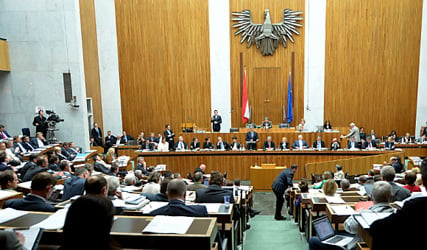The top earning MPs, who take home an additional €10,000 after tax each month are People’s Party (ÖVP) members – followed by MPs from the Freedom Party (FPÖ) and Socialist Party (SPÖ).
MPs receive €8,440 gross per month as their state salary – and roughly how much money they earn from other work is now available to read on the parliament website.
MPs were asked to give details of all paid jobs and voluntary leadership roles, but need not fear full disclosure as the parliament website lists additional monthly income in five broad categories: up to €1,000, €1,001-3500, €3,501-7000, €7,001-10,000 and €10,000. It does not say how much an MP earned for an individual job, but just the overall sum.
The APA press agency reports that some MPs were worried that if they were earning too much they might be asked to resign, but that has not happened.
A year ago, only eight MPs had an additional income of over €10,000 – now there are ten. The number of MPs earning an additional €7,001-10,000 has increased from four to 14.
The ÖVP has four MPs in the top earning category, the FPÖ has three, and the SPÖ has two. The liberal NEOS party and the Greens party have the most full-time MPs. A total of 48 MPs received no extra income in 2013.



 Please whitelist us to continue reading.
Please whitelist us to continue reading.
Member comments